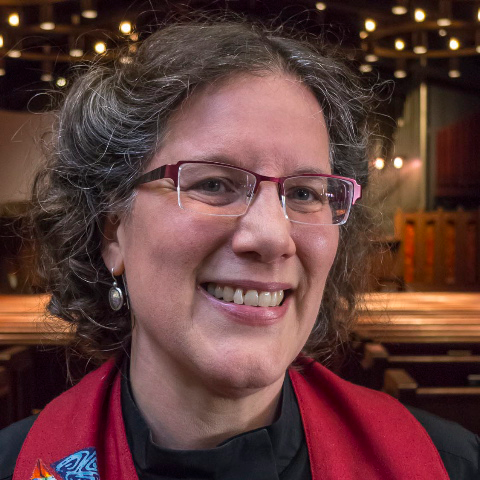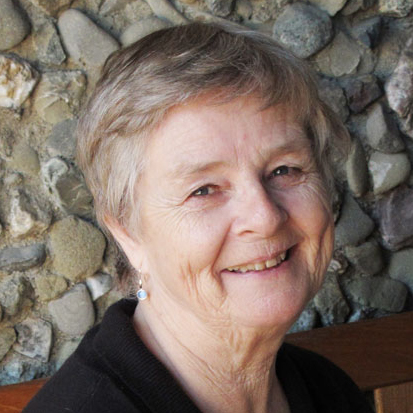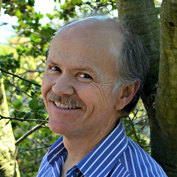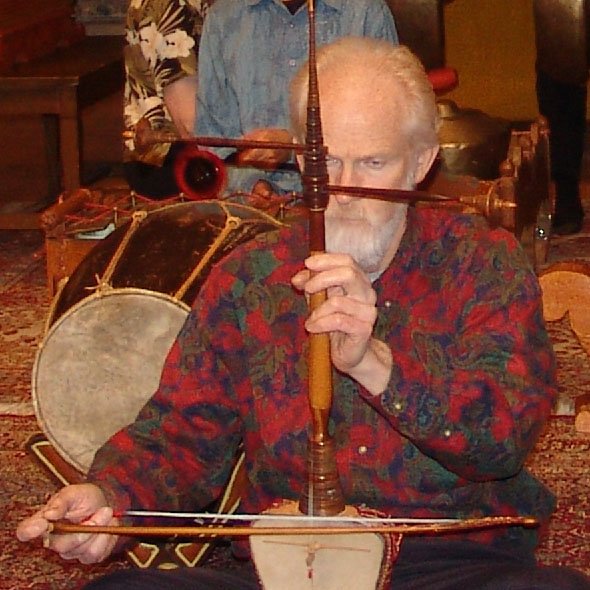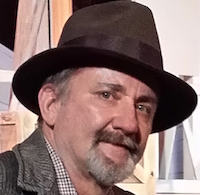Reflection
(From the Rev. Dr. Jim Nelson, who serves my home congregation in Pasadena, CA.)
“A woman in a congregation I served asked to come talk with me. When she arrived, she appeared nervous. I asked her what was going on, and she began to cry. She told me about a choice she had made that she could not forgive herself for. A mistake which she feared people she loved could not understand or accept. She kept it secret and the secret was eating away at her. She did not know what to do.
We talked for some time, until finally I asked a question which partly surprised even me: ‘Do you want me to forgive you?’ I asked. With tear-reddened eyes she looked so intently at me and said ‘yes, please.’
I was not sure what to do. We were not Catholics at confession. We were both UUs. There was no sacrament of forgiveness to invoke. She had done nothing against me. Yet, because I was her minister – she needed forgiveness and for me to offer it. She was suggesting I possessed a kind of power I was not trained for nor was even sure I wanted.
What was I to do? Say ‘no?’ Tell her ‘Sorry, I don’t do forgiveness!?! I don’t know how to forgive!?!’ I couldn’t! I finally concluded, as her minister, that I could not refuse.
And so I said this: ‘By all that is sacred and Holy, by the weight of the sorrow you have carried in your heart, you are forgiven.’ I could almost see a visible weight lifted from her. She cried. She thanked me and left.
She did not return to church for some time. But when she did she let me know that she had told the people who mattered to her about what she’d done and, together, they had moved to a different – and better – place in their relationship. And she thanked me for forgiving her.
◊ ◊ ◊
Sermon
{podcast_episode 198}
What is it that gives us the power to forgive? What is it that makes us want / need forgiveness? What is it that makes the whole concept of forgiveness difficult for some of us?
These hard questions are what I want to explore this morning. And as I do I am hoping that our time might also bring some understanding to the religious nature of forgiveness. Perhaps what stance Unitarian Universalism takes in forgiveness. And, maybe even a little understanding about this thing some of us call God.
I don’t often set my sights this high for a single sermon. But I do so today because I know the mark of my success today will be measured NOT by how well I am able to reveal the truth about religion. Or by uncovering the purpose of being UU. Or by explaining God. The mark of success today will be measured, in the end – when I fail to adequately explain any of this – by whether what I’ve said has helped you to forgive me.
And to know how important forgiveness is to me. And to all of us.
I want to start with an old story in my own life. Partly because it’s about the struggle around forgiveness. But mostly because it reveals that struggle can be very funny. And tender. And hard.
It starts one morning when I was about five. My brother, sister and I were with our mom on our weekly ritual of grocery shopping. In our family the weekly grocery run came with great incentive. Our family lived by the rule that every child got to choose one box of cereal. We knew staying at home meant settling for the cheapest or the healthiest brand and we had no interest in being cheap or healthy.
There are many alluring reasons for choosing a box of cereal. But at the tender age of five there is nothing more compelling than the ‘free inside item.’
This morning I want to tell you about choosing Honeycombs. Let me be clear. I don’t like Honeycombs. Honeycombs, for those who haven’t had it, is like sugar coated perforated particle board. The pieces are also large enough to choke you to death if you don’t chew them well. And they are second only to grape-nuts in hardness, which means that if you don’t soak them in milk for at least twenty minutes, they will take off the first three layers of the roof of your mouth before you can swallow them.
I chose Honeycombs because of the ‘free inside item.’ On the back of the box – in specially coated cardboard – they lathed a record. It was the hit single, “Sugar, Sugar” by the Archies. I wanted that record.
Getting my mom to buy the cereal was easy. Eating it was a whole ‘nother thing. Because I was determined to have the record right away, I attempted to consume the entire box in one sitting. Mistake number one.
Any box that can fit a record on the back of it – even a single – is, needless to say, a rather large box with a lot of cereal.
I ate as fast as I could, finishing one bowl and starting another. Mistake number two: I didn’t let the cereal soak long enough.
Somewhere during the third bowl of cereal I discovered my mouth was bleeding. Still, determined to get the record, I tried to cut it out from the back of the box without compromising the integrity of the cereal liner. But kindergarten scissors and impatient five year old fingers aren’t the stuff that stealth is made from. Mistake number three: the cereal liner was compromised.
A trail of Honeycombs led to where I shoved the gutted and leaking box into the back of the cupboard. And it was while I was attempting to flatten out a warped cardboard record onto our 1953 console stereo that I heard the ominous roar of the Gods who watched over that land letting me know that a great unrest was about to descend.
◊ ◊ ◊
I want you to use your imagination for a few minutes. Imagine the scream that travels through the house. Imagine the look on a five year old’s face. Imagine the thoughts and feelings that press upon him. Imagine something you have done sometime in your life that might have created such a place.
Can you imagine the feeling of panic. The dread that others noticed your transgression. Fear of being judged. But deeper than that – for many of us – the creeping feeling of estrangement. Of suddenly discovering we are now living on the outside of a circle cast that we, in the depth of our soul, had spent our entire lives trying to live within. And knowing not how to return without being pierced by judgment.
Suddenly this might sound a whole lot like guilt to some of us. How many people don’t respond very well to guilt? How many people decided to cancel all reservations with religions that organize guilt trips?
I’m with you. Too often, guilt has been used to manipulate people and has done great harm. And religion, in general, has been a major player in the guilt industry, hurting good people. But I also believe that underneath guilt – underneath other people’s opinions of whether we belong in the circle, is our own conscience. And constantly overriding or ignoring our own conscience – in order to avoid guilt – or other people’s judgment – can do great harm.
This might take us into the realm of shame – or judgment coming, not from others, but from ourselves. But here is where I ask people to remember the creation story – one of the first stories in the Bible – where God made the world and everything in it and pronounced it ‘good.’ Take note: He did not pronounce it ‘amazing.’ Not ‘perfect.’ But ‘good.’ It is goodness that we are made to strive for, not perfection. But it is the idea of judgment – of never good enough – that presses so many of our buttons.
◊ ◊ ◊
From the time my mom discovered the box of Honeycombs to the time the family was gathered into the living room was only a matter of minutes. There were only five of us but it felt like the jury room of Twelve Angry Men. My mother, my father, my brother and my sister and me sitting in a circle.
My mother began. “We found a box of Honeycombs in the cupboard with a hole cut out of it…” A laughing smirk came spasmodically from my brother. “…and we wanted to know if anyone here might know anything about this.” My eyes felt like they were tethered to an anchor on the floor, but I could feel the stares of my family on me with pinpoint accuracy. Silence. “No one?” my mom continued. Silence. “We just want the truth.” Silence. Without a doubt, the most painful silence I have ever known in my entire life.
◊ ◊ ◊
There is a pain that I became very familiar with that day. A pain I believe each of us knows – each in our own unique way. A pain that is part of the human condition. The part in us that always aspires to trust and connection – with our partners, or parents, or community, or Life itself – and when something happens to break that trust or block that connection, the pain can leave us feeling isolated and alone – separate from everything that matters to us.
At its best, I believe that is what religion is designed to do – to help us transcend separateness. Either through Love, or understanding – to cultivate an awareness that ‘we are all one.’
But I also know how religion is often carried out… it has also become associated with judgment that has hurt people. I am sad for all we have lost in our inability as human beings to offer religion as it could be. A Unite-ing, healing thing.
◊ ◊ ◊
I’m not sure which was more painful: being unable to say anything or being unable to look anyone in the face. I kid you not, it was three hours I sat in that circle without sharing my transgression.
After the first hour, my siblings lost their sense of humor about the incident and began to show open hostility and resentment about the fact that they too – the innocents – were stuck indoors with me – the obviously guilty one – on a great sunny day. Even my father was getting weary after two hours and began questioning how long we were going to continue this charade.
◊ ◊ ◊
Last night, at sundown, we concluded Yom Kippur – the highest of holy days in the Jewish calendar. Yom Kippur is the day of atonement. The day people who feel any estrangement or separation are called back to covenant. A time Jewish people recast the covenant to include anyone who has fallen away who, in the depths of their heart, want back in. For those willing to choose honesty and humility over isolation. For the Jewish people, it is a difficult, tender and beautiful time. No more hiding from guilt or shame. Olly, olly oxen free.
At the heart of Judaism is a conversation. The conversation that occurred between Abraham and Yahweh when Abraham walked away from his home town, estranged from all he knew. In the conversation God extended a promise – a covenant – to Abraham that basically said this: ‘I will be yours and you will be mine and together we will make promises and together we will find our way to a promised place.’
But the problem is, as Jewish theologian, Martin Buber, once said, ‘human kind is a promise making, promise breaking, promise re-making people.’ We were not made perfect. We constantly fall short of our promises and we are constantly called to the task of finding our way back. That is what Yom Kippur – the day of Atonement – (at-one-ment) is for. To help us find our way back together.
◊ ◊ ◊
“We are not interested in punishing anyone.” My mom said that several times as time marched on and we sat tensely in a circle. “We just want to know the truth. We just want to become a whole family again.” But I struggled to believe her. I was stuck on the whole notion of judgment – of being seen as ‘bad.’ And, though I didn’t know it, I was introduced, at that moment, to everything I didn’t like about God.’
◊ ◊ ◊
It was as clear to me that day that I would never abide by a God who judges. A god who sits at a big desk and looks over his glasses, over his ledger, down through the clouds, to keep tabs on everything I do and write it all down. That is a popular notion today – the god of judgment. It is one of the reasons I believe religion has failed in it’s purpose of uniting people.
But there are three things that helped me get passed such destructive notions of religion and God. The first was a quote from Rumi who said this: ‘there is a field that exists somewhere beyond right or wrong, beyond good or bad. I will meet you there.”
The second thing was meeting other people who also struggled with God as a judge. But people who had the creative integrity to do more than simply reject a judgmental God, but envision a larger God. For example, to imagine God as an activist who works for justice; or as a nurse who seeks to heal the sick; or as a mourner in a cemetery who grieves losses. Or as a writer – maybe even a humorist – who just watches and writes down our funny habits. Or, my favorite, a God who is like a porter who accepts our baggage and helps us find our place on the train.
And my faith has also been revived by people who see beyond God altogether. Who just see others in need. And then form a place such people can come into. Where they can feel a little less separated. A little less lost. A little more found. People who call: Olly Olly Oxen Free.
But the third thing that helped – the biggest thing – happened when I was five years old.
◊ ◊ ◊
We sat together as a family in that living room. Those people – my family – felt the crushing awkwardness of the uncomfortable question that kept us trapped. They all knew it was a question only I could answer. And waiting for me to do so was not only painful for me, but for them as well. But I believe now that those people, in that room, would have waited for me forever. Holding a space until I was able to find my way back.
But it did not take forever. At the end of the third hour, we held a secret ballot – sometimes it takes such creative measures. On a small piece of paper I wrote in orange crayon, “I did it. I lied. I’m sorry.”
Without another word – much to my family’s relief – the circle of judgment ended. But for me – that day – a circle of love and understanding was cast that will never be broken. A circle which I have made a promise to extend as wide and as far as I am able to imagine.
◊ ◊ ◊
That is covenant. A place without judgment. A place where people are willing to hold the circle until those who’ve felt cast out are able to find their way back in. It is what religion can be. It is what this religion promises to be. It is what this religion falls short of on occasion. And what we are forever being called back to.
If you thought living with a God who judges is hard, try living with a God who calls you into a circle – not for three hours – but for a lifetime – and asks you not to judge. That is hard.
That is the promise of this community: to do the hard work. To love people through the trials where we fall short. In the hopes that one day, all people’s names will be written in the book of Life.
May we, for another week, strive to love one another.
To the Glory of Life.
Copyright © 2014, Rev. Greg S. Ward. All Rights Reserved.







